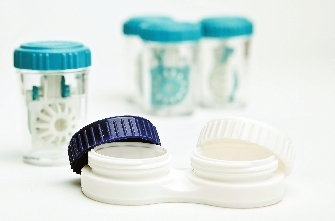
HAVE you ever wondered what happens to disposable contact lenses when it’s time to dispose of them? Some scientists at Arizona State University asked that question and found that a lot of them are going down the sink or getting flushed down the toilet — adding to the problem of microplastic pollution. Microplastics are bits of plastic that have been worn down into tiny pieces that are smaller than 5 millimeters. They can be harmful to wildlife. After being flushed, the lenses float through the wastewater system to sewage treatment plants. They don’t degrade during the treatment process but tear into smaller and smaller pieces. The fragments are heavier than water, so they settle into the treated sewage sludge, which is often spread on land. The lenses can then make their way into rivers, lakes and the ocean through runoff. “It sounds like a very small problem, because the lenses themselves are tiny, but they come by the billions,” said Rolf Halden, director of the university’s Center for Environmental Health Engineering. “We have created an almost immortal material. It does not go away. It does not biodegrade,” Halden said. This is a good thing when it comes to contact lenses, because, he said, you don’t want them to degrade in the user’s eye, which could impair vision or become a breeding ground for bacteria. Contact lenses are a small part of the pollution problem, but researchers hope that the findings will encourage people to think more about how to get rid of plastic waste. Contact wearers should throw their lenses in the trash or recycle them, they advise. They also suggest labeling contact boxes with a line like “dispose of these with solid waste.”(SD-Agencies) | 
